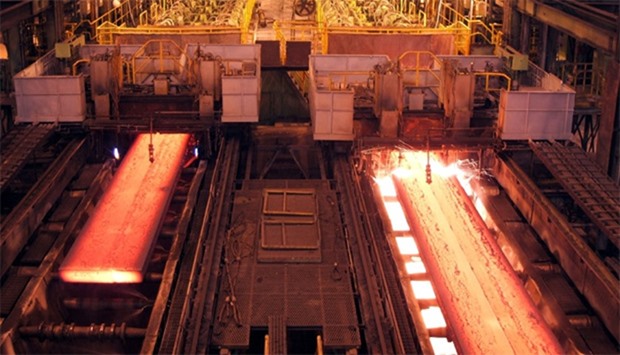* Vietnam says ready to work with EU anti-fraud office
* EU declines details on other cases
The European Union's anti-fraud office (OLAF) is investigating whether Chinese companies shipped steel through other countries to avoid anti-dumping duties, as trade disputes with the world's largest steel producer heat up.
OLAF is looking into several cases where Chinese steel firms shipped the metal to another country, disguised its origin, and then shipped it on to Europe in a process known as ‘transshipment’.
The fraud agency would not give any details on its current investigations. But according to a filing on the Vietnamese trade ministry's website, OLAF is investigating 190 cases of Chinese coated steel coils that arrived in Portugal, Spain and Poland from Vietnam in 2013-2014.
The EU is ratcheting up trade defences against China, under political pressure from a spate of bankruptcies, capacity closures and job losses in the steel sector that have fired up anti-globalisation sentiment.
OLAF estimates the shipments via Vietnam were worth about $19 million and that the steel was given Vietnamese certificates of origin, the Vietnamese trade ministry said on its website. If confirmed, OLAF would apply retroactive duties of 58 percent on the shipments, it added.
Chinese trade authorities declined to comment. Vietnamese authorities told Reuters they were ready to receive a delegation from OLAF.
‘We will be co-operating actively with the EU to investigate ... and have appropriate measures in place,’ said the head of the Vietnam Industry and Trade Ministry's European Market Department, Dang Huu Hai.
Steel is the second largest industry in the world after oil and gas, with an estimated global turnover of $900 billion. Steelmakers face sluggish demand growth, chronic overcapacity what they say is a flood of Chinese steel sold at a loss.
Beijing denies it is ‘dumping’ or exporting steel at a loss, saying overcapacity is a global problem. Nevertheless it has committed to cutting 150 million tonnes of capacity by 2020.
‘The (EU's) determination to protect the domestic steel industry remains high...There will be more and more hurdles for the Chinese,’ said Julius Baer analyst Carsten Menke.
The latest EU investigations follow news that the US Commerce Department on Monday opened an probe into allegations that Chinese steel producers are diverting shipments through Vietnam to avoid tariffs.
The United States has slapped anti-dumping duties of more than 500 percent on some Chinese steel products.
‘There is no doubt that EU decision-makers look at what the US is doing, and sometimes there is even coordination. It makes sense... because US measures (if effective) can easily lead to the diversion of trade flows to the EU,’ said Laurent Ruessmann, a partner at lawyers FieldFisher.
China's steel output rose for a seventh straight month in September and its exports are on track to beat last year's record 112 million tonnes.

